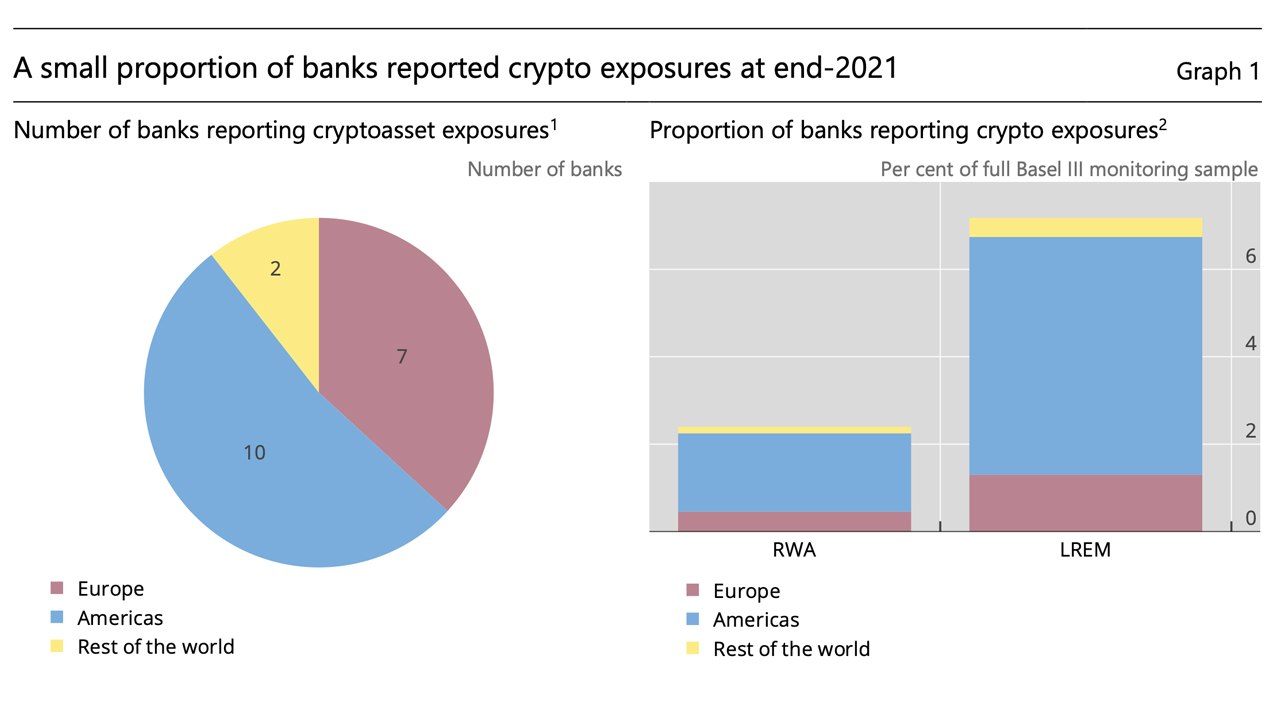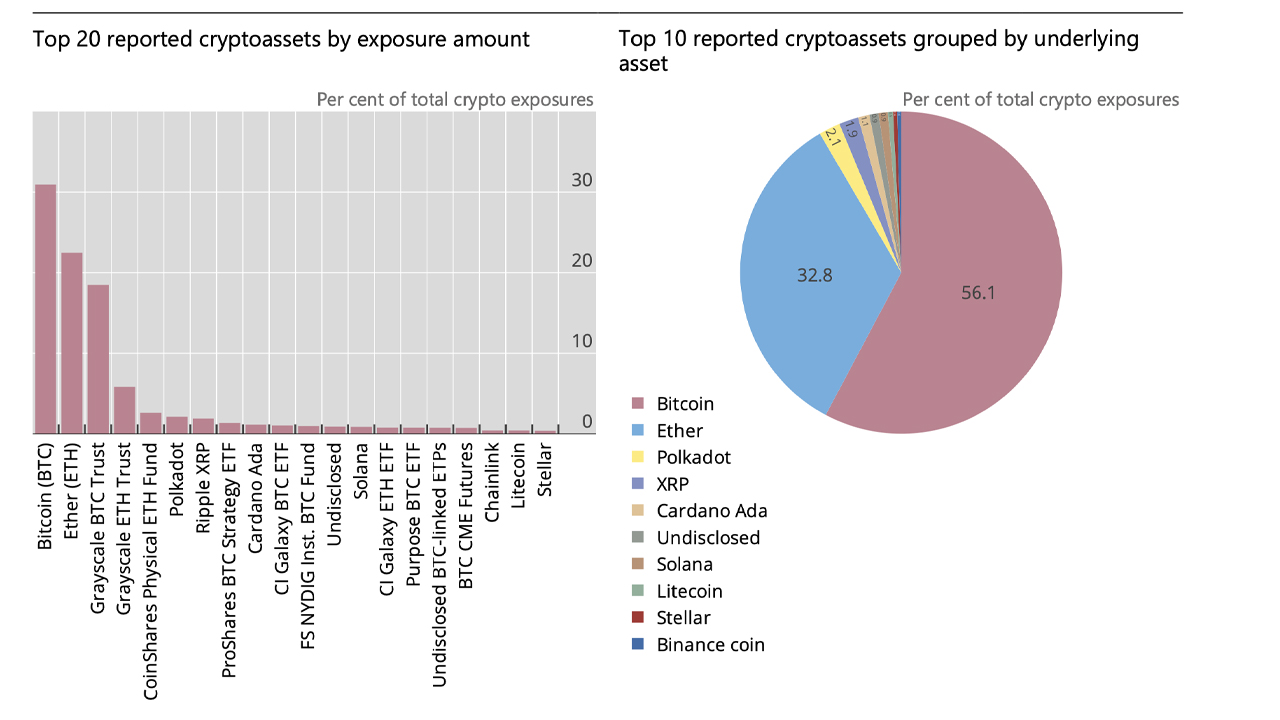
A first-of-its-kind study published by the Basel Committee on Banking Supervision details that the world’s largest financial institutions are exposed to roughly €9.4 billion (US$9 billion) in crypto assets. The research paper authored by the Basel Committee’s secretariat Renzo Corrias further explains that out of all the banks’ total risk exposure, cryptocurrency exposure is estimated to be around 0.01% of total exposures.
Banks Have $9 Billion in Cryptocurrency Exposure Equating to Roughly 0.01% of Total Risk Exposure
A recent study published by the Basel Committee on Banking Supervision (BCBS) explains that the world’s top banks are exposed to around $9 billion worth of cryptocurrencies. The BCBS is a global organization made up of members tied to the world’s central banks and financial institutions from a myriad of jurisdictions.

The study, called “Banks’ exposures to cryptoassets – a novel dataset,” was written by secretariat Renzo Corrias. The research aims to create a primary global standard on the “prudential treatment of banks’ [crypto asset] exposures.”
“Total [crypto asset] exposures reported by banks amount to approximately €9.4 billion. In relative terms, these exposures make up only 0.14% of total exposures on a weighted average basis across the sample of banks reporting [crypto asset] exposures,” the report written by Corrias details. “When considering the whole sample of banks included in the Basel III monitoring exercise (ie also those that do not report [crypto asset] exposures), the amount shrinks to 0.01% of total exposures.”

The BCBS shows that 19 banks worldwide submitted data for the research, and approximately ten financial institutions derived from the Americas. Seven banks stemmed from Europe, and two banks came from the rest of the world. Corrias notes that the banks represent a small group of financial institutions out of the collective 182 banks the BCBS considered for its Basel III monitoring exercise.

The crypto asset exposure the banks reported mostly consisted of bitcoin (BTC) which was around 31% of exposures, and ethereum (ETH) which accounted for 22% of exposures. In addition to exposure to USD-backed stablecoins, banks are also associated with crypto assets like xrp (XRP), cardano (ADA), solana (SOL), litecoin (LTC), and stellar (XLM).
Corrias explains that the banks’ exposure to crypto is comprised of three different categories which include crypto holdings and lending, clearing and market-making services, and custody/wallet/insurance services. Out of the top five activities that add to the banks’ crypto exposure, the top service is “providing custody or wallet services for [crypto assets].”
What do you think about the recent BCBS report concerning banks’ exposures to crypto assets? Let us know what you think about this subject in the comments section below.








